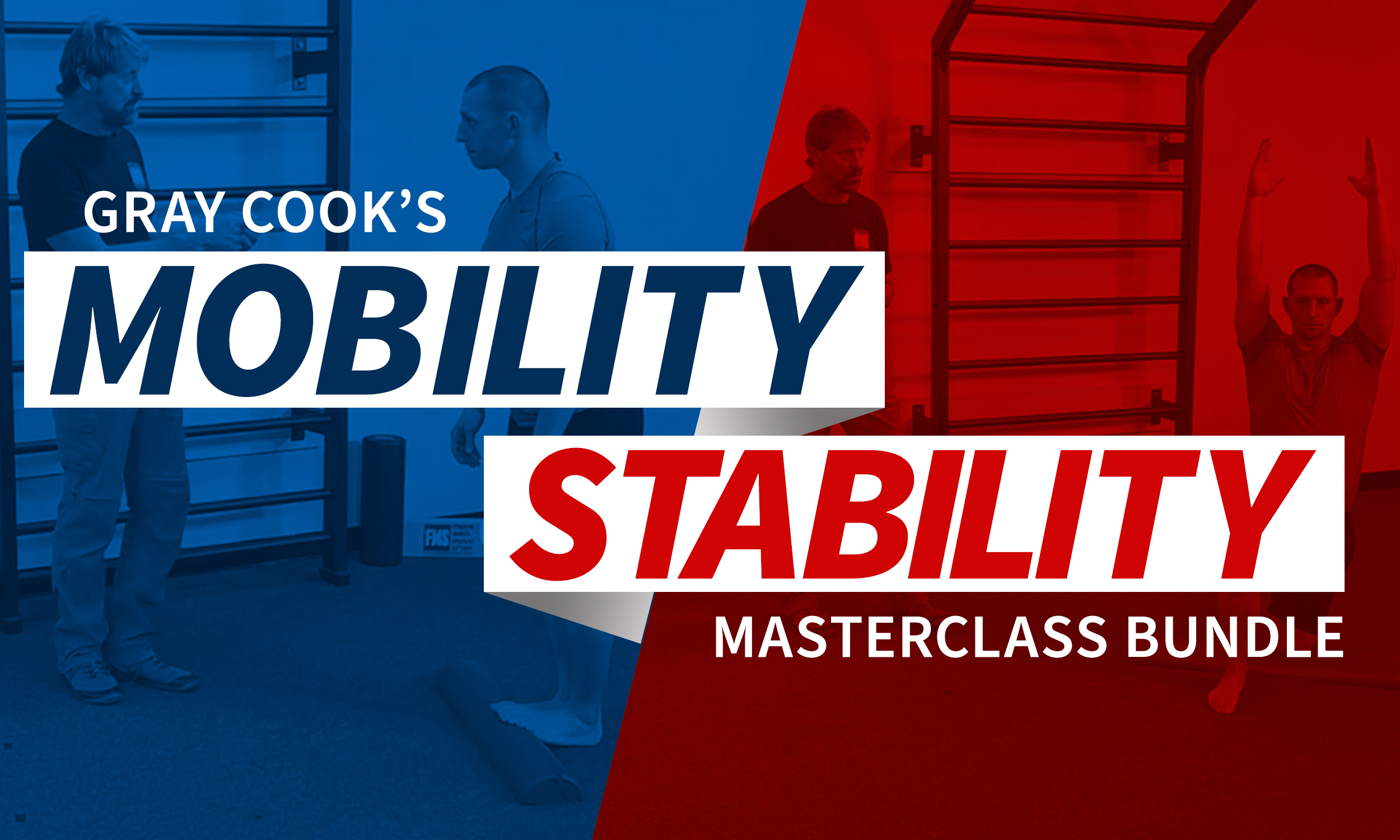Featured

Description
Save $49 with the Movement Masterclass Bundle.
What's included in this Bundle
Movement Masterclass: Mobility
Course length: 1 hour, 3 minutes
This course spans movement professions and the Functional Movement Systems (SFMA, FMS, MCS) to focus on functional mobility and why its consideration is important early in the process of movement correction. Gray Cook guides you with his insights into global movement patterns and screening to differentiate mobility limitations due to tissue quality from those caused by inappropriate tone. The five labs present real-time coaching using both local (soft tissue work and joint mobilizations) and global (Mobility Flow and Starter) approaches to gathering information on mobility issues and programming the most appropriate and effective exercises to correct them.
Course Objectives
- Define a mobility problem from a functional point of view.
- Use screening methods to determine whether tissue or tone are causing limited mobility.
- Guide patient/client through flow exercises to gather information and bring awareness to their asymmetries and balance issues.
- Differentiate when local measures are appropriate and when global measures should be used.
- Gain awareness of how proper screening, testing and assessing (FMS, SFMA and MCS) play vital roles in managing mobility issues.
- Understand the developmental rationale of the mobility-first mindset.
Movement Masterclass: Stability
Course length: 1 hour, 2 minutes
In this exploration of stability problems and their solutions, Gray Cook details the vital interplay between local tissue quality, muscle performance and global movement patterns. All too often we see movement professionals identify weakness in a stabilizer muscle, focus on strengthening it and then wonder why the isolated exercise didn’t transfer to improved stability. A functional approach to stability/motor control ensures that the local parts are fulfilling their respective roles in greater global patterns - and the transitions between patterns. The six labs are focused on global corrective exercises for stability concerns (including Gray’s Stability Flow), but also include local tests and tips on when their use can be the most beneficial.
Course Objectives
- Learn why “practicing the test” doesn’t work for stability problems.
- Learn when to use isolated tests for muscle weakness and when to use global tests of top tier function.
- Develop a basic understanding of the principles behind Reactive Neuromuscular Training.
- Understand the importance of subconscious stability as related to automaticity and basic movement patterns.
- Consider the different roles the central nervous system (CNS) and peripheral nervous system (PNS) play in losing, developing and maintaining functional stability.
- Discern between stability problems caused by improper inputs vs. those from incorrect outputs.
